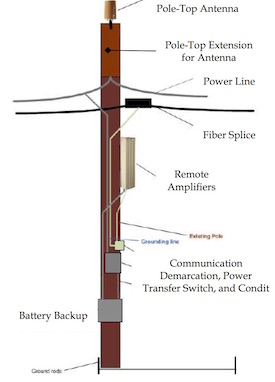Muni broadband debate heats up in Tennessee, because it can
![By Foto de Tech. Sgt. Cherie A. Thurlby, USAF [Public domain], via Wikimedia Commons](https://www.tellusventure.com/images/2016/2/dolly_parton.jpg)
Something you don’t see in Washington.
All or nothing federal policies are great when you’re getting it all, but when the political winds shift and you end up with nothing, it’s not so wonderful. That’s why I think the Federal Communications Commission’s preemption of state restrictions on municipal broadband is a bad idea: its current more is better policy will only last as long as three commissioners agree with it, but its authority to regulate muni broadband will live forever.… More


![By Andrew Currie [CC BY 2.0 (https://creativecommons.org/licenses/by/2.0)], via Wikimedia Commons](https://www.tellusventure.com/images/2016/2/cat_box.jpg)
![By Brocken Inaglory (Own work) [CC BY-SA 3.0 (https://creativecommons.org/licenses/by-sa/3.0) or GFDL (https://www.gnu.org/copyleft/fdl.html)], via Wikimedia Commons](https://www.tellusventure.com/images/2016/2/san_bruno_explosion.jpg)
![By Taken by fir0002 | flagstaffotos.com.au Canon 20D + Canon 70-200mm f/2.8 L (Own work) [GFDL 1.2 (https://www.gnu.org/licenses/old-licenses/fdl-1.2.html)], via Wikimedia Commons](https://www.tellusventure.com/images/2016/1/monopoly_board.jpg)


![Collin Knopp-Schwyn [CC BY 4.0 (https://creativecommons.org/licenses/by/4.0)], via Wikimedia Commons](https://www.tellusventure.com/images/2016/1/pole_attachment.jpg)

